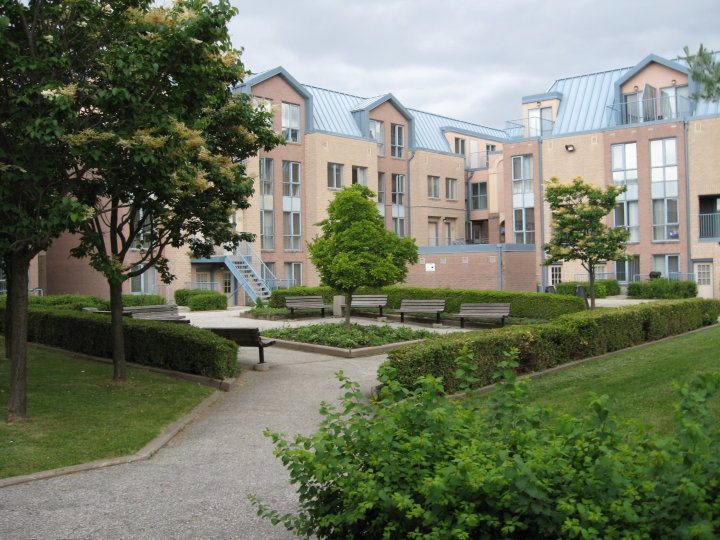
In a Time of Remote Learning, Students on Campus Face Additional Challenges
Remote learning and social distancing have had a significant impact on law students at Osgoode, some of whom are facing these strange circumstances while living on campus at Osgoode Chambers. One major change is that students who live in residence are forced to attend the bulk of their classes via Zoom in their rooms, instead of leaving during the day for classes and returning mostly to eat and sleep. The covid crisis seems to have exacerbated some problems at Passy Crescent (which subsumes Osgoode Chambers), creating a messy situation for students who now rely even more on the services it provides. As one anonymous 1L said, “When problems happen at the residence, I would normally just go to a café or library to work, but with social distancing now I have to be careful. I have family members who are immuno- compromised, so I need to be extra careful, which means dealing with problems when they come up at the residence.”
From a few short interviews, it was easy to spot a pattern in the concerns expressed by students. The main ongoing concerns centered around access to campus internet, and safety concerns in the buildings.
While internet issues at Passy (and on campus in general) are uncommon, the consequences of a dropped connection are now much more severe. According to one anonymous 1L, “While the internet hasn’t been majorly disruptive to me, the times that it has been have been unbearable. When the internet goes down, the entire network goes down. For students living in residence, this means we cannot attend our classes, submit assignments, or even let our professors know, if we don’t have York apps downloaded on our phones already. This puts an additional burden on our peers to inform our professors of the issues. When the internet goes out, it means a day of stress, anxiety, and unproductivity.” While it is true that some students pay for a personal internet connection or have access through a data plan on their cell phones, not everyone at Passy has these same privileges.
Residents also expressed concerns about safety in the buildings- and especially with a low number of security cameras in and around the buildings. Students are of course aware that this area of Toronto can be dangerous and are exposed to regular news reports about violent crime in the surrounding area. The students I spoke with expressed feelings of concern and stress related to the perceived lack of security. One student lamented that there has been a trend of vandalism of interior signs at Passy related to the requirement of wearing masks in the stairway and hallways, pointing out that interior cameras could help to identify those responsible, or even act as a deterrent before vandalism occurs. The low cost of security camera installation has led to some feelings among the students that perhaps the building managers simply don’t care about these concerns. Naturally, in a time of high stress and remote learning, when students are forced to spend much more time than usual isolated within their own rooms, attention is drawn to ongoing stressors like this one, which some students fear can impede their concentration on studies.
Overall, of course, residents seem appreciative of the benefits associated with life on campus, including proximity to the school itself and to a community of peers. One resident added: “I like that it’s right across the street from the school. […] I like my community of friends […] and like- minded individuals.” He also noted that while maintenance issues do arise in buildings as old as those on Passy Crescent, the security team is “fairly responsive” when called and can ensure that high-priority maintenance requests are addressed relatively quickly.
There is hope that the issues around internet access and security might be addressed. Another issue affecting remote classes occurred earlier this semester with an update to the fire alarm system in each of the rooms, which resulted in alarms going off more than once a week at Passy and forcing all of the residents to exit the buildings and congregate in the courtyard. The timing of the false alarms was extremely inconvenient, as they often sounded during classes that did not provide recordings to students under normal circumstances, so students were forced to make additional requests from professors in order to catch up on missed content. This problem was extremely disruptive to students’ ability to take classes, but it was addressed within a month with what seems to have been a permanent fix. Some of the residents expressed hope that other issues on campus, including the somewhat unreliable internet connection, would be addressed in a similar fashion.
